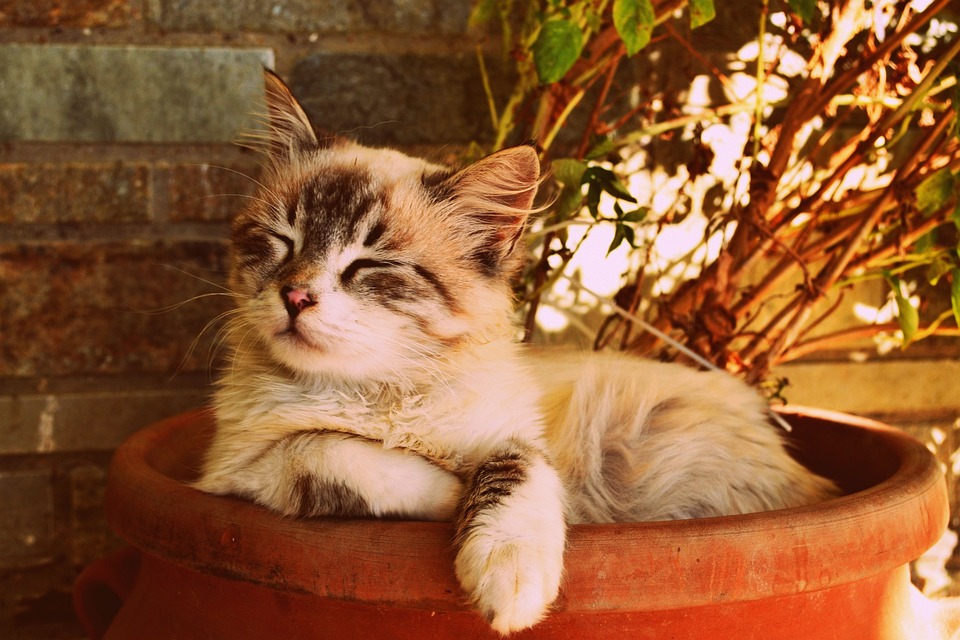**When Your Cat’s Skin Goes Haywire: Understanding and Managing Feline Eczema**
*Unraveling the Mystery of Feline Eczema and its Causes*
Feline eczema, also known as allergic dermatitis, is a common skin condition that can make your beloved feline friend miserable. Characterized by itchy, inflamed, and irritated skin, this condition can significantly impact your cat’s quality of life. Understanding the causes, symptoms, and treatment options can help you provide the best care for your furry companion.
**What Causes Feline Eczema?**
Feline eczema is primarily caused by allergies. Cats can be allergic to a wide range of substances, including:
1. **Flea Allergy Dermatitis (FAD):** Flea saliva is a common allergen that can trigger eczema in cats. A single flea bite can cause severe itching and discomfort for an allergic cat.
2. **Environmental Allergens:** Pollen, mold spores, dust mites, and household cleaning products are among the environmental allergens that can cause feline eczema.
3. **Food Allergies:** Certain ingredients in your cat’s diet, such as chicken, fish, or grains, can trigger an allergic reaction and lead to eczema.
4. **Contact Allergens:** Your cat may develop eczema when exposed to certain materials, such as plastic, rubber, or certain fabrics.
**Recognizing the Symptoms of Feline Eczema**
Identifying the signs of feline eczema is crucial for timely intervention. Keep an eye out for the following symptoms:
1. **Excessive Scratching:** Cats with eczema will often scratch excessively, leading to hair loss, sores, and scabs.
2. **Skin Redness and Inflammation:** The affected areas of your cat’s skin may appear red, inflamed, and warm to the touch.
3. **Hair Loss:** Continuous scratching can cause hair loss, leaving bald patches on your cat’s body.
4. **Skin Lesions and Sores:** Eczema can lead to open sores, crusts, and scabs, making your cat susceptible to secondary infections.
**Managing Feline Eczema: Treatment and Prevention**
While feline eczema can be challenging to manage, several steps can help alleviate your cat’s discomfort and reduce the frequency and severity of flare-ups:
1. **Flea Prevention:** Regular use of vet-approved flea control products is essential to prevent flea bites and flea allergy dermatitis.
2. **Allergen Avoidance:** If your cat has environmental allergies, minimizing exposure to allergens, such as keeping your home clean and using air purifiers, can be beneficial.
3. **Dietary Changes:** If food allergies are suspected, your veterinarian may recommend a hypoallergenic diet or an elimination diet to identify the allergen.
4. **Topical Treatments:** Medicated shampoos, sprays, or ointments containing ingredients like hydrocortisone or antihistamines can help soothe your cat’s skin and reduce itching.
5. **Supplements and Medications:** Certain supplements, such as omega-3 fatty acids or immune-modulating drugs, may be prescribed to manage eczema symptoms.
6. **Regular Vet Check-ups:** Regular veterinary check-ups are crucial to monitor your cat’s condition, adjust treatments as needed, and prevent complications.
**FAQs About Feline Eczema**
**Q: Can feline eczema be cured completely?**
A: While feline eczema cannot be cured, it can be managed effectively with proper treatment and preventive measures.
**Q: Can I use human eczema creams on my cat?**
A: No, it is not recommended to use human eczema creams on cats. Consult your veterinarian for appropriate feline-specific treatments.
**Q: Is feline eczema contagious to humans or other pets?**
A: No, feline eczema is not contagious to humans or other pets. It is an allergic reaction specific to cats.
**Q: Can stress worsen feline eczema?**
A: Yes, stress can worsen feline eczema. Minimizing environmental stressors and providing a calm and stable environment can help manage the condition.
**Q: Are there any natural remedies for feline eczema?**
A: Natural remedies, such as oatmeal baths or herbal supplements, may provide some relief, but it is crucial to consult your veterinarian before using them.
Remember, early detection and proper management are key to ensuring your cat’s comfort and well-being when dealing with feline eczema. By working closely with your veterinarian and implementing preventive measures, you can provide your furry friend with a happier, itch-free life.








